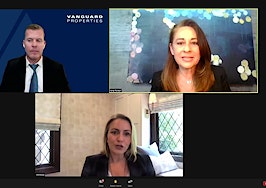“It wasn’t meant to be.” There isn’t a worse curse phrase in real estate. Buyers often say that it was “not meant to be” when a deal is lost. Sometimes it’s good to have a line in the sand as another home usually comes up right around the corner. But this market is different.
Right now, we’re in an extreme seller’s market. There are a lot of reasons for this. COVID-19 was like an earthquake, and the market settled differently than before it occurred, though some things might have already been at play. You must walk through what’s going on, why it’s happening and what you need to do to win a deal.
The goal is for you not to miss out on a home and for your clients not to burn their hands on the stove. There just isn’t enough inventory available to mess around.
By being educated and prepared with proper strategies, we can avoid saying it “wasn’t meant to be” and instead say that home we just secured was meant to be. Here are 18 strategies for winning deals in a hyper-extreme seller’s markets.
1. Prepping the client
Make sure to schedule an in-person or Zoom meeting to discuss this topic. Follow it up with a written email. People need time to absorb just how difficult this market is and understand all the strategies that are currently available to them.
A few things that have changed: The pandemic’s reshuffling of where we want to live, work-from-home opportunities, new appreciation of the house, new need for space, low rates, less market supply, individual market supply (our Northeastern Corridor of Palm Beach County is built out, but demand of people moving here is speeding up), more stimulus and savings in the economy, to name a few.
2. Understanding the market
Go through national statistics. This includes the National Association of Realtors (NAR), your local market and other stats that include things like how much prices have risen. Then, break it down locally by county and neighborhood subdivision/building statistics.
Be sure your buyers understand the complexities of this market to make them more nimble. The economy will eventually even out, and people’s spending habits will go back to usual as things open up post-pandemic. Inflation is possible. On top of that, some builders are shutting down production because of raising costs of materials, namely lumber, and labor.
Set realistic expectations with buyers about how lightening quick this market is. We all have those horror stories of losing offers. Use them if need be.
3. Share sources
Share reputable journalistic articles, both local and international, with your clients. Outlets like Inman, Bloomberg, Wall Street Journal, CNN and your local publications (Palm Beach Post for me) all offer great reporting that will help your clients understand the market.
Some buyers tend to think their agents just want the sale. That said, the more they read up on what is happening from sources they trust, the more likely they’ll be prepared and listen to your advice.
4. Give the clients what they want
Marshall Field, the department store owner, won over customers by always taking returns and having the motto of “Give the lady what she wants.”
When talking to the listing agent, you must understand what the client wants. Price is important, but there are other things — like a flexible closing date and an offer to take care of unwanted old furniture — that matter, too.
5. Pay out-of-the-box costs!
In our market, the seller picks up most of the closing costs. Offer for your buyer to pay them. Everyone can come in at full price (and even a bit more), but sometimes, an extra factor which might cost less money sticks out and can end up being a difference maker.
6. Escalation clause: Price
This is kind of like a reverse price guarantee. Put in a clause in writing that your clients will match any bona fide offer through a certain date by $1,000. We just did this on a full-price offer. The deal got complete at $640,000 but we put in a $20,000 escalator clause for $660,000 — and won the deal.
7. Escalation clause: Date
It’s the same idea here, but instead, you’re offering flexibility on the closing date. If the sellers want to move the closing date up or back, they must give ample notice.
This will work if your buyer has that flexibility and will give the sellers the option to shop for something else with unknown time frames.
8. Big deposits
In this competitive market, the days of 3 percent down are over. Come in with 10 percent or more. I have seen 25 percent and even 100 percent all paid upfront.
9. Do not come up short!
Think big. In a multiple-offer situation, do not just come up $1,000 or 1 percent more. Oftentimes buyers have to come with 5-10 percent more than asking.
10. The early bird gets the sale
Schedule showings as early as possible. We pushed for one appointment at 8 a.m. and settled at 9 a.m. We wrote the offer up early in the morning before others had a chance to get in. All to say, hours — and even minutes — matter in this market.
11. Cancel golf and bridge
We lost one deal because our buyer insisted on playing golf. His wife will never let him forget that round! Play your round after the showing.
12. Be nice to everyone involved
You and your client need to assertive, but don’t do anything to put off the listing agent. Of course, this should go without saying. A buyer telling the seller to “go pound salt” will just leave you and your client with a lot of salt.
13. Shorter inspection periods
In our market, the default time period for inspections is 15 days. Oftentimes, it’s brought down to 10 days. Right now, our inspection periods are about five to seven days.
14. Bring in your broker
You need to think through every deal and get your broker on the phone with your client. Change of pace and a different voice will show you care — and sometimes that’s needed. Every thought must be played out. Right now, I’m heavily involved in lots of deals with my agents.
15. Mortgages: Keep them local
Your clients should be using a local mortgage broker who knows the local market, answers the phone and texts back to you within a few hours. Firm loan approvals need to be done within 10 days instead of 30 days to compete with cash.
16. Put it in writing
Every offer needs to be in writing. Do not get lazy here. People think about things and take them more seriously when they’re in writing. It’s never a done deal unless it’s in writing.
17. Super-fast acceptance times
Don’t offer deals with a day to think about it (or the market default of 48 hours for counter-offers). If you’re writing an offer in the morning, make it good for 5 p.m.
If it’s later in the day, make the time of acceptance the next morning at 10 a.m. You must be fearful that another deal is going to come in. Time is not your friend.
18. Have a growth mindset
In a normal deal, there’s give and take. Right now, a “good deal” is getting the house. Your client is not in control and will likely end up in a bidding war. The seller is holding a ridiculous number of cards. Your buyer must be flexible in understanding that.
By helping your clients understand the current market and the details of the situation, they’ll be more in control when navigating the homebuying process and winning the property. Then they can say it was “meant to be.”
Jeff Lichtenstein is the President/Broker of Echo Fine Properties. Connect with him on Facebook or LinkedIn.













